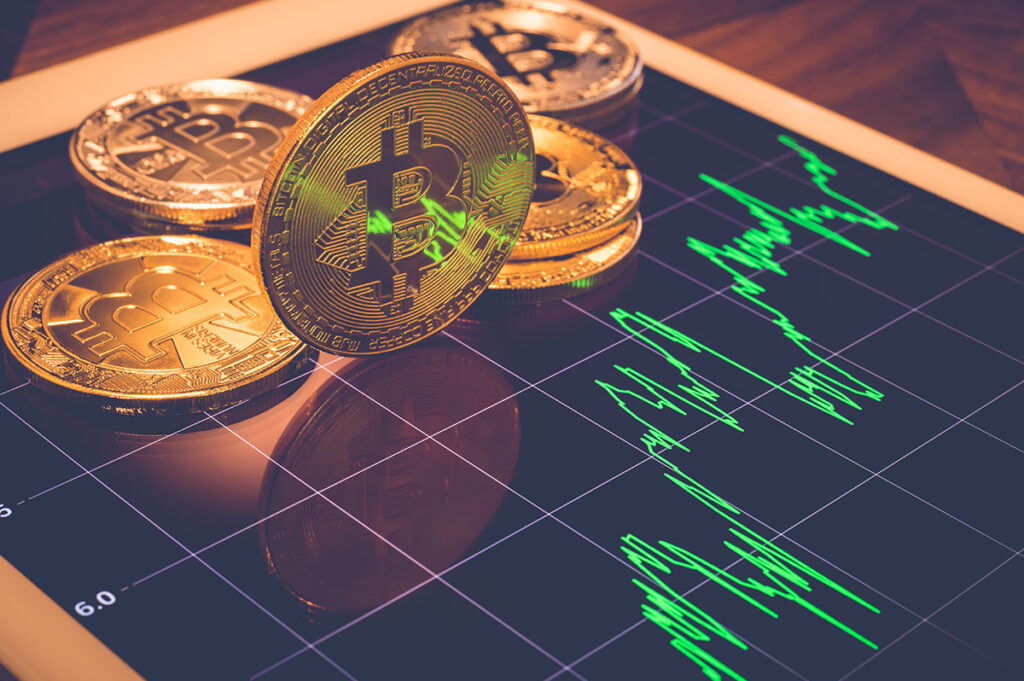Many experts believe decentralized finance has great potential to transform the way we do business, and more people are dipping their toes in the industry than ever before. When we observe the crypto markets, we can see some investors are looking to buy the dip and bank on upside volatility, while others just enjoy speculating.
Still others are looking to get the jump on a transformative tech that facilitates new types of economic activity, with the potential to revolutionise industries as diverse as shipping and logistics, banking and retail. Crypto is also extremely attractive to those looking for a safe store of value, as it’s not subject to inflation like fiat money. Mathematical algorithms cap assets, so their value cannot be diluted, and they cannot be printed, taxed or confiscated, making them ideal for anyone worried about hyperinflation or bank failures.
There’s no denying crypto is a high-risk sector. Unregulated investment schemes have a bad reputation for sucking in unwary investors using their attractively high yields, only to collapse at the first sign of a market wobble. At worse, DeFi is also a haven for scammers and other bad actors. With the risks of crypto in mind, investors need to be much savvier than their centralized finance counterparts: doing due diligence on everything from market behaviours and performance of specific funds and assets to technical details including custody, trade procedures, valuation and verification processes, conflicts of interest, and regulatory risk.
Crypto index funds explained
Enter crypto index funds. Just as with conventional index funds such as the S&P 500 index, crypto index funds are a financial instrument that allows people to invest in a group of assets to diversify their portfolio and hedge against risk.
Proponents claim this helps to mitigate the risk of adverse price movements and offset losses or gains.
The idea behind these funds comes from conventional finance. An individual invests in several stocks as a managed portfolio, rather than individual stock, as the fund manager purchases assets in proportions according to market shares. As a particular asset goes up or down, the index fund will reflect this in the proportion of holdings it has in that asset. In theory, index funds are a simple and inexpensive financial vehicle that allow investors to hedge against risk and maximize returns.

Diversified portfolios of individual investors
Normal brokerage accounts or pension funds have not caught up with the world of crypto, so some DeFi investors have turned to manually creating their own diversified portfolios, individually selecting and managing a basket of currencies.
But there are downsides to the DIY approach – not least that it entails a considerable amount of work. If an individual chooses to diversify their holdings in this way, they would need to create wallets for multiple currencies, keep abreast of index data, calculate weighting, and buy and sell individual currencies across different exchanges as the market evolves. Buying and selling also always incurs gas, even though the DIY approach sidesteps further management fees.
The do-it-yourself approach permits individuals to customise their holdings based on their own investment preferences, which clearly presents a big draw for some. Owning assets directly means ultimate control. But few individual investors devise their own set of rules to mitigate the effect of emotional bias and personal preferences in the process. Crypto index funds focus on data and prognosis and don’t allow decisions made on a whim.

Indexing crypto
So index funds allow investors to diversify and keep costs low – and they have a solid track record in both traditional and emerging financial markets. But how is the crypto market responding to the growing demand for 21st-century index funds? And what crypto-specific issues are proving challenging for developers?
Hundreds of different indexes give investors insight into the performance of conventional stocks, which means accurate equity indexing. For example, the aforementioned S&P 500 index, first launched in 1957, has become one of the most influential indexes in the world, with trillions of dollars benchmarked to it. It represents approximately 80% of available US market capitalisation. Similar crypto indexes have also become available. The same company that runs the S&P 500 index, Dow Jones, has already developed eight separate indexes following the crypto market, the most well-known of which is the S&P Cryptocurrency Broad Digital Market Index, which tracks over 250 currencies.
Meanwhile, CoinMarketCap, one of the most influential crypto data authorities, aims to bring greater transparency and accountability to market data aggregation. Acquired by leading crypto exchange Binance in a $400 million deal in 2020, CoinMarketCap offer a global crypto market capitalization index and historical data.

The early birds of blockchain
It’s still early days for the entire blockchain industry, which is, of course, part of its appeal for many investors. New use cases, technology and applications are discovered and developed every day, and crypto index funds are as yet only in their infancy. All this means there is no one-size-fits-all solution and no well-trodden path to follow. Crypto is an intrinsically risky business, and investors must do their research very carefully and never invest in what they cannot stand to lose.
Early adopters need a clear vision, shrewd insights and a willingness to take on increased risk, but in return, may gain a competitive advantage that leaves later adopters in their dust. In an industry yet to reach maturity, you can be sure the early birds of blockchain are keeping a beady eye on the development of crypto index funds.
Sources:
https://www.techtarget.com/whatis/feature/Common-cryptocurrency-scams
https://www.fool.com/investing/stock-market/indexes/sp-500/
www.investopedia.com/ask/answers/how-can-i-buy-sp-500-fund/%23:~:text%3DAn%2520S%2526P%2520500%2520Index%2520Fund%2520is%2520an%2520investment%2520comprised%2520of,mutual%2520funds%2520track%2520the%2520index.https://cointelegraph.com/tags/coinmarketcap
https://www.spglobal.com/spdji/en/index-family/digital-assets/cryptocurrency/%23overview
https://cointelegraph.com/tags/coinmarketcap
